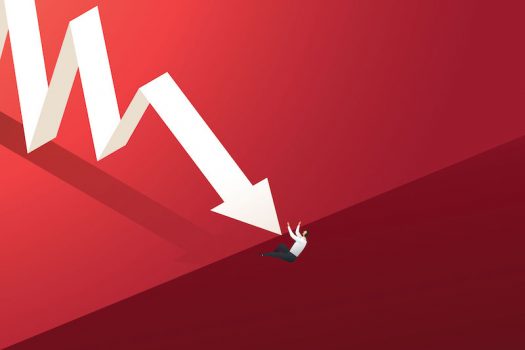SVB: What Happened and What Happens Next?
by on 15th Mar 2023 in News

It’s been a rollercoaster few days for the tech world, as the downfall of Silicon Valley Bank (SVB) - the second-largest US bank crash ever - plunged the future of thousands of companies, from startups to conglomerates, into immediate doubt.
Interventions from the US government and HSBC in the UK have allowed those with money invested in SVB to breathe a sigh of relief - so what happened? And what are the repercussions?
How the news, and the bank, broke
Make no mistake, this was a big deal; the biggest bank failure since the crash of 2008, and the second largest bank collapse in history. On Friday 10th March, news began filtering through that SVB was to be shut down by US regulators. The federal government took over the bank after the shock revelation that SVB had sold $21bn (~£17.2bn) in assets.
Investors began to try to take out their funds as panic set in, with uncertainty continuing over the weekend. After two days of scrambling for answers, the US government stepped in, with President Biden issuing a statement to calm the fears of the industry, and those of the wider public: "Americans can rest assured that our banking system is safe, your deposits are safe."
The US takeover of the bank came from the Federal Deposit Insurance Corporation (FDIC), a fund of USD$125bn (~£102.7bn) made up of levies on bank deposits. Biden continued: “no losses will be borne by taxpayers.”
In the UK, quick efforts were made to shore up its SVB subsidiary, and on Monday it was announced that the UK government had arranged for Silicon Valley Bank’s (SVB) UK operations to be bought out by HSBC. The takeover, which cost HSBC just £1, is set to save thousands of British tech firms from major financial losses.
The Bank of England said that all depositors' money was "safe and secure" as a result of the purchase and that the deal would "restore confidence in the financial system." HSBC, Europe’s largest bank, described the purchase as making "excellent strategic sense".
SVB’s significance in tech
Silicon Valley Bank was used by nearly half of VC-backed startups in the US. Starting as a local bank in California, SVB found a niche as the local industry boomed, and as tech became a high-powered global industry, so SVB became a global bank. The lender specialised in high-growth start-ups, creating a viable option for tech firms who would struggle to access financial services elsewhere. Dubbed part bank, part networking community, part venture capital firm by Wired, SVB was deeply embedded in a number of markets: in Ireland, the bank intended to invest over half a billion dollars in tech and life science start-ups, and in the Netherlands SVB was in talks to fund more local companies.
SVB’s collapse has not only struck the tech world’s start-up scene; many of tech’s major players were invested in SVB. Roku, Circle, Buzzfeed and Roblox all had large sums held in SVB. Although the rescue measures implemented by the Biden administration and The Bank of England should bring some relief, uncertainty remains around the stability of the global economy.
The lack of insurance seems to have been the catalyst for SVB’s downfall. The vast majority of SVB’s $157bn worth of deposits at the end of last year were over the FDIC’s $250,000 deposit-insurance cap, causing investors to jump quickly and attempt to withdraw their money.
What next?
Given the US takeover and the HSBC purchase, sighs of relief all round? Perhaps not. The Financial Times is reporting that the SVB crisis “has torn into global markets, with investors ripping up their forecasts for further rises in interest rates”, and US regional banks “closing sharply lower” at close of business on Monday.
Federal Reserve chair Jay Powell released a statement that: "The events surrounding Silicon Valley Bank demand a thorough, transparent, and swift review.”
The UK has seen a similar ripple effect, as the FTSE 100 closed down 2% on March 14th. While the situation certainly isn’t as grave as it initially seemed, or could have ultimately been, the full extent of the ramifications may take some time to emerge.
Ad TechBankingFundingInvestment








Follow ExchangeWire